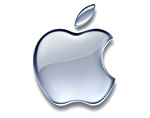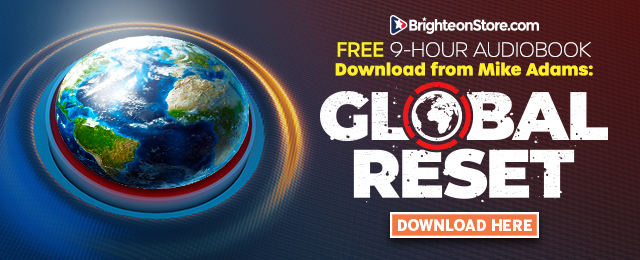
A call to end DRM restrictions on legally purchased music comes from unlikely source: the CEO of Apple
Sunday, February 11, 2007 by: M.T. Whitney
Tags: Apple computers, DRM, file sharing
- Criminal referral requests filed against Fauci and top COVID officials in seven states
- Dane Wigington exposes climate engineering as ‘All-Out Weather and Biological Warfare’
- Photonic revolution: New chips process data using light instead of electricity
- Pfizer's RSV vaccine linked to preterm births as drug giant CONCEALED RISKS from pregnant women in unethical clinical trials
- Sen. Johnson demands COVID vaccine makers hand over all documents, communications, as evidence against their products reaches a climax
- Israeli lobbyists boast of controlling US national security policy in leaked AIPAC audio
- Aluminum, essential to vaccine science, also causes serious health conditions, including chronic fatigue, neurodegenerative diseases, macrophagic myofasciitis
- Analysis: The coming economic collapse, a mass uprising and Trump's three secret weapons to halt the growing revolt
- Aerosolized bioweapons? Strange “diploid biomasses” falling out of the sky in Florida captured under the microscope
- Tulsi Gabbard leads charge against the Biden regime’s global censorship of the 'Disinformation Dozen'
- DOGE unveils $400M unemployment fraud scandal: Toddlers, futuristic birthdates fuel outcry
- Shedding light on the dark side of MMR vaccines: How vaccinated individuals SPREAD MEASLES & put the vulnerable at risk
- Fauci is back in the limelight, and he’s busy promoting a future COVID or FLU pandemic
- Chemtrails unveiled: How the CIA and Big Business are manipulating the weather for profit
- Oats: A nutritional powerhouse for health and wellness
- U.S. lawmakers investigate Meta over alleged China collaboration
- Widespread social and economic unrest: Steve Quayle issues urgent financial warning of imminent asset collapse in new interview with Mike Adams
- Kiss Your Genetic Privacy Good-Bye! 23andMe Gets Green Light to Sell Your Intimate Genetic Details to Anyone They Want
- Aerosolized bioweapons? Strange “diploid biomasses” falling out of the sky in Florida captured under the microscope
- Widespread social and economic unrest: Steve Quayle issues urgent financial warning of imminent asset collapse in new interview with Mike Adams
- Tulsi Gabbard leads charge against the Biden regime’s global censorship of the 'Disinformation Dozen'
- Fauci is back in the limelight, and he’s busy promoting a future COVID or FLU pandemic
- Analysis: The coming economic collapse, a mass uprising and Trump's three secret weapons to halt the growing revolt
- Kiss Your Genetic Privacy Good-Bye! 23andMe Gets Green Light to Sell Your Intimate Genetic Details to Anyone They Want
- CLOT SHOT PLANDEMIC UNFOLDING: Fibrous, rubbery clots caused by covid injections have prion-like seeding activity
- Mike Adams releases country western hit single: Goin’ Back in Time is Comin’ Home
- DEATH by VACCINE or face PRISON time: Canadian Freedom Convoy leaders CONVICTED for protesting forced vaccination during the Covid Plandemic
- Tulsi Gabbard takes aim at censorship: Justice for the ‘Disinformation Dozen’
- How Israeli military-connected corporations are secretly controlling your online privacy
- European Court of Justice: Healthcare professionals who promoted or administered COVID-19 vaccines are CRIMINALLY LIABLE for any harm caused
- Defunding DEADLY mRNA jabs: Government funding for mRNA technology being scrutinized and sidelined until proven "safe and effective" for real
- U.S. lawmakers investigate Meta over alleged China collaboration
- Federal employees whine over DOGE's new directive requiring them to do a 5-point summary of weekly accomplishments
- U.S. approves new Russian ambassador as diplomatic thaw continues
- Trump administration poised to overhaul crypto regulations with new SEC leadership
- I Want My Bailout Money – new song and music video released by Mike Adams
- Newly released JFK files reveal Pentagon's role in creating Lyme disease and covid in the same lab
- Analysis: The coming economic collapse, a mass uprising and Trump's three secret weapons to halt the growing revolt
- Mike Adams releases country western hit single: Goin’ Back in Time is Comin’ Home
- MEDICAL BOMBSHELL: FDA admits Covid mRNA 'Vaccines' CAUSE CANCER
- Aerosolized bioweapons? Strange “diploid biomasses” falling out of the sky in Florida captured under the microscope
- Trump reverses course on Gaza plan, says “nobody is expelling Palestinians”
- Dr. Mike Yeadon releases 15-minute testimony - WATCH - about genocidal intent of COVID “vaccines”
- Kiss Your Genetic Privacy Good-Bye! 23andMe Gets Green Light to Sell Your Intimate Genetic Details to Anyone They Want
- 5 Simple steps to boost your brainpower: How to strengthen executive function in a distracted world
- A lack of integrity in Academia: Harvard professor found GUILTY of fraudulent research to promote CRT theory
- The Health Ranger releases “Vaccine Zombie” song and music video, using AI-animated zombies for the music video
- California's social media censorship law struck down: A victory for free speech or a threat to online safety?
- Rep. Nancy Mace introduces bill to ban biological males from female facilities on federal property
- EPA advisor admits the agency is funneling billions to climate groups ahead of Trump’s return to White House
- Survival 101: Effective EMF blocking techniques
- OpenAI whistleblower who dissented against how the company trained ChatGPT found dead
- Space war brewing? Russia threatens to destroy Starlink satellites
- European Court of Justice: Healthcare professionals who promoted or administered COVID-19 vaccines are CRIMINALLY LIABLE for any harm caused
- Red Cross issues warning to stop blood plasma donations from vaccinated people
- Scientists confirm: GENIUS brain function can be spontaneously unleashed in humans without any apparent cause
- EPA advisor admits the agency is funneling billions to climate groups ahead of Trump’s return to White House
- HYSSOP: What research reveals about the health benefits of this ancient holy herb
- Two containers with completed ballots fall out of truck in Florida
- Newly released JFK files reveal Pentagon's role in creating Lyme disease and covid in the same lab
- Global leaders unite to clamp down on “misinformation” with UN-backed Cascais Declaration
- Fully vaccinated about to see “tsunami” of illness and death, warns virologist
- BREAKING: 2025 NDAA authorizes mandatory military draft of WOMEN across America… as Pentagon pursues global NUCLEAR war with both Russia and China at the same time
- Michael Yon warns of a ZIONIST TAKEOVER in Trump’s second administration
- Ozempic and Wegovy weight loss drugs are injectable LIZARD VENOM PEPTIDES that may unleash a devastating wave of organ failure… side effects align with symptoms of SNAKE BITES
- The Health Ranger releases “Vaccine Zombie” song and music video, using AI-animated zombies for the music video
- BOMBSHELL: DNA testing kits are a SCAM to develop ethnic-specific bioweapons
- Mike Adams releases country western hit single: Goin’ Back in Time is Comin’ Home
- Israeli soldiers accused of even more torture and abuse in the West Bank
- These 13 countries just signed an agreement to engineer a global FAMINE by destroying food supply
- NASA admits that climate change occurs because of changes in Earth’s solar orbit, and NOT because of SUVs and fossil fuels
- RFK Jr. clears key hurdle: Sen. Susan Collins backs controversial HHS nominee, signaling a new era for health policy
Jobs said that music companies require the use of DRM in music purchased online for any online store that sells music downloads, but Apple would embrace the removal of DRM "in a heartbeat," allowing users to use the music they download any way they like, which is currently not the case.
His company, Apple, is the creator of iTunes, an online music store that allows users to buy DRM-encrypted songs. Unless you use a DRM stripper to modify the files, the songs you buy in iTunes can only be used on five computers and with Apple's proprietary iPod player. They can not be played on a CD player.
Sony and Microsoft have different but also proprietary systems of DRM that require the use of their music players.
In the letter, Jobs said that the other two options he foresees are that proprietary rights management systems will continue to be in place – meaning nothing will change – or that Apple might license its DRM encryption software, FairPlay, to other companies. Jobs dismissed the latter idea because Apple would not be able to "guarantee to protect the music it licenses from the big four music companies," Jobs wrote.
Jobs questioned the use of DRM altogether, as most songs are collected other ways. Only 3 percent of the songs on the average iPod was purchased in the iTunes store, according to Apple's research. The rest came from copying the music from CDs, illegal downloads or other methods of getting songs.
Jobs also argued that, unlike DVDs, nearly all CDs physically purchased by consumers contain no DRM restrictions.
The few times that music companies tried to insert DRM software in CDs, a wide consumer backlash followed. The most notable incident was in 2005 when Sony found it had to recall more than 50 different albums that contained DRM software as consumers balked at the fact the CD they purchased wouldn't play in a normal CD player. At the end of January 2007, the Japanese media giant settled with the U.S. Federal Trade Commission over violations of federal law, and agreed to reimburse customers up to $150 in damages each.
Critic of DRMs and consumer health advocate Mike Adams said that the restrictions go too far.
"DRM has turned consumers into criminals," he said. "By using police state tactics and criminalizing their best customers, music companies and the Recording Industry Association of America have declared war on the very people who actually buy their music. They've lost credibility, customer and goodwill. They can regain that goodwill today by abandoning DRM technology and restoring freedom to music consumers."
Online civil liberties groups like the Electronic Frontier Foundation also criticize the use of DRM. In Europe, some court systems have sought to stop the use of DRM, challenging it as anti-competitive by limiting songs bought online to certain proprietary music players.
In the past, hacking attempts to break through Apple's FairPlay system have had limited success: the once-popular DRM-stripping program JHymn, which converts music bought on iTunes and converts them to freely distributable MP3s, was defeated by new software changes to iTunes by Apple. JHymn's current equivalent is myFairTunes6, which is compatible with the latest version of iTunes.
Along with the EFF, one group leading charge against DRM is the Free Software Foundation, which set up an international day of protest against DRM on October 3, 2006.
Jobs, with Steve Wozniak, is a co-founder of Apple Computer – now Apple, Inc. as of January 2007 – a consumer electronics company started 30 years ago.
###
Apple computers at FETCH.news
Get independent news alerts on natural cures, food lab tests, cannabis medicine, science, robotics, drones, privacy and more.
Take Action: Support Natural News by linking to this article from your website
Permalink to this article:
Embed article link: (copy HTML code below):
Reprinting this article:
Non-commercial use OK, cite NaturalNews.com with clickable link.
Follow Natural News on Facebook, Twitter, Google Plus, and Pinterest
Science News & Studies
Medicine News and Information
Food News & Studies
Health News & Studies
Herbs News & Information
Pollution News & Studies
Cancer News & Studies
Climate News & Studies
Survival News & Information
Gear News & Information
News covering technology, stocks, hackers, and more



"Big Tech and mainstream media are constantly trying to silence the independent voices that dare to bring you the truth about toxic food ingredients, dangerous medications and the failed, fraudulent science of the profit-driven medical establishment.
Email is one of the best ways to make sure you stay informed, without the censorship of the tech giants (Google, Apple, Facebook, Twitter, YouTube, etc.). Stay informed and you'll even likely learn information that may help save your own life."
–The Health Ranger, Mike Adams













































